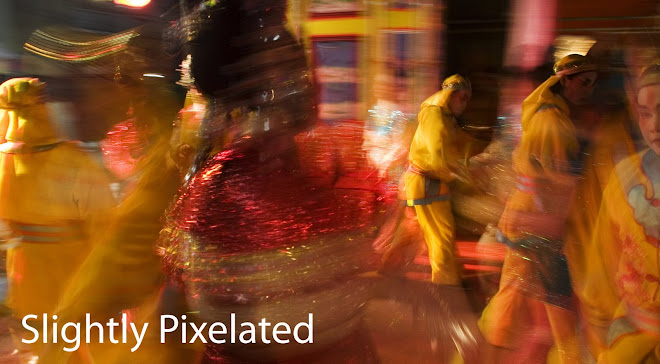
REUTERS/Kerek Wongsa
Just over two months after the Red Shirts of the United Front for Democracy Against Dictatorship (UDD) began a protest calling for the dissolution of parliament and fresh elections, the Thai government has at last succeeded in restoring order.
It came at a price.
More than 80 people were killed and over 1,300 injured during clashes between government security forces and protesters.
Swathes of Bangkok, one of the world's most popular tourist destinations and the bustling epicenter of Thailand's high-octane economy, were transformed into battlefields.
Tonight Bangkok is under curfew. Heavily armed soldiers still patrol in 'sensitive' areas. Key public transport networks remain closed.
Around the city blackened buildings, pocked with the scars of gunfire, still smoulder after angry demonstrators rampaged Wednesday, looting shops and torching whatever they could. Department stores, cinemas, banks and even a TV station were attacked. In all more than 30 fires were lit.
If the mood isn't celebratory, one senses relief among Bangkokians that the darkest, wildest days of violence are now behind them. Public transport will resume limited services on Sunday when the curfew is also due to be lifted. Most people in Bangkok should return to work normally on Monday.
The barricades which served as frontlines in pitched battles between troops and protesters, and were vivid symbols of the divisions behind this crisis, have been dismantled. And the Red Shirt protesters, who had camped out in one of the capital's swishest commercial districts, have now either gone gone home or been arrested.
As Thailand begins to count the cost of its worst civil unrest in modern history, thoughts are beginning to turn to the future.
Though the fires have been extinguished and the protests quelled, there is concern that the anger and frustration which pushed Bangkok to near anarchy continue to burn.
In a televised speech a day after the violence, Abhisit vowed his government would seek reconciliation. "We will help each other rebuild our nation for the happiness of all," he declared.
He will need to be very serious about that challenge if he is to transform the order he has imposed into lasting peace.
Though their leaders have surrendered, many Red Shirts have said they are determined to fight on. At this point it is still unclear what form their struggle will take, but there are fears of more violence in the weeks and months ahead.
The spectre of an armed conflict, and the crippling instability it implies, is a real possibility. Although most of the Red Shirt protesters were expressing legitimate opposition to the government, the movement's most extreme elements are known to be armed.
The immediate challenge for Abhisit's government, amidst the bitterness and fury generated by so many deaths and injuries, is to build trust, credibility and a semblance of neutrality. The Prime Minister must demonstrate that he has the strength to step away from narrow political interests and govern for the good of the entire nation.
Caught in powerful political cross currents as he navigates between coalition partners and his military backers (to whom he owes his political survival), Abhisit will need to show that his government intends to quickly address gaping economic inequalities.
His Finance Minister, Korn Chatikavanij, revealed yesterday that Thailand has "consistent current account surpluses, record foreign exchange reserves and good fiscal space." It is imperative the government now use these resources to implement policies that will alleviate the effects of falling rice prices and a drought in parts of the Northeast, factors that have fanned discontent in disadvantaged rural areas from where the Red Shirt movement draws much of its support.
Abhisit must also show a willingness to tolerate political opposition that operates within the law and that he is prepared, as soon as possible, to announce a firm election date and subject his government to the scrutiny of the ballot box.
Ironically, Abhisit's best chance of building popular support lie in policies that will antagonise some of his closest allies.
The Prime Minister needs, for example, to take legal action against leaders of the Yellow Shirt movement (also known as the People's Alliance for Democracy or PAD) responsible, in 2008, for a three-month-long occupation of Government House and for shutting down the nation's international airports.
In doing so he would send a clear signal of personal courage and political neutrality.
Such a move would also expose him to dangerous political cross-fire, especially when one considers that his current Foreign Minister was a prominent figure among the Yellow shirts and supported their occupation of the airports.
By arresting Yellow Shirt leaders guilty of crimes no less serious than their Red Shirt counterparts, Abhisit would be showing a willingness to apply the law with equality and would undermine one of the Red Shirts' key criticisms of him: that in arresting its leaders while ignoring those of the Yellow shirts his government is guilty of double standards.
While Prime Minister Abhisit may be eloquent and well meaning, and though his government may have the material resources to impose order, the future stability of Thailand, and perhaps ultimately any hope for peace here, reposes on his government's desire to restore its moral, as opposed to physical, authority and legitimacy.
If in putting an end to the Red Shirt protests the government intends merely to affirm its power then it has simply won one battle in what could turn out to be a long and bitter war.

No comments:
Post a Comment